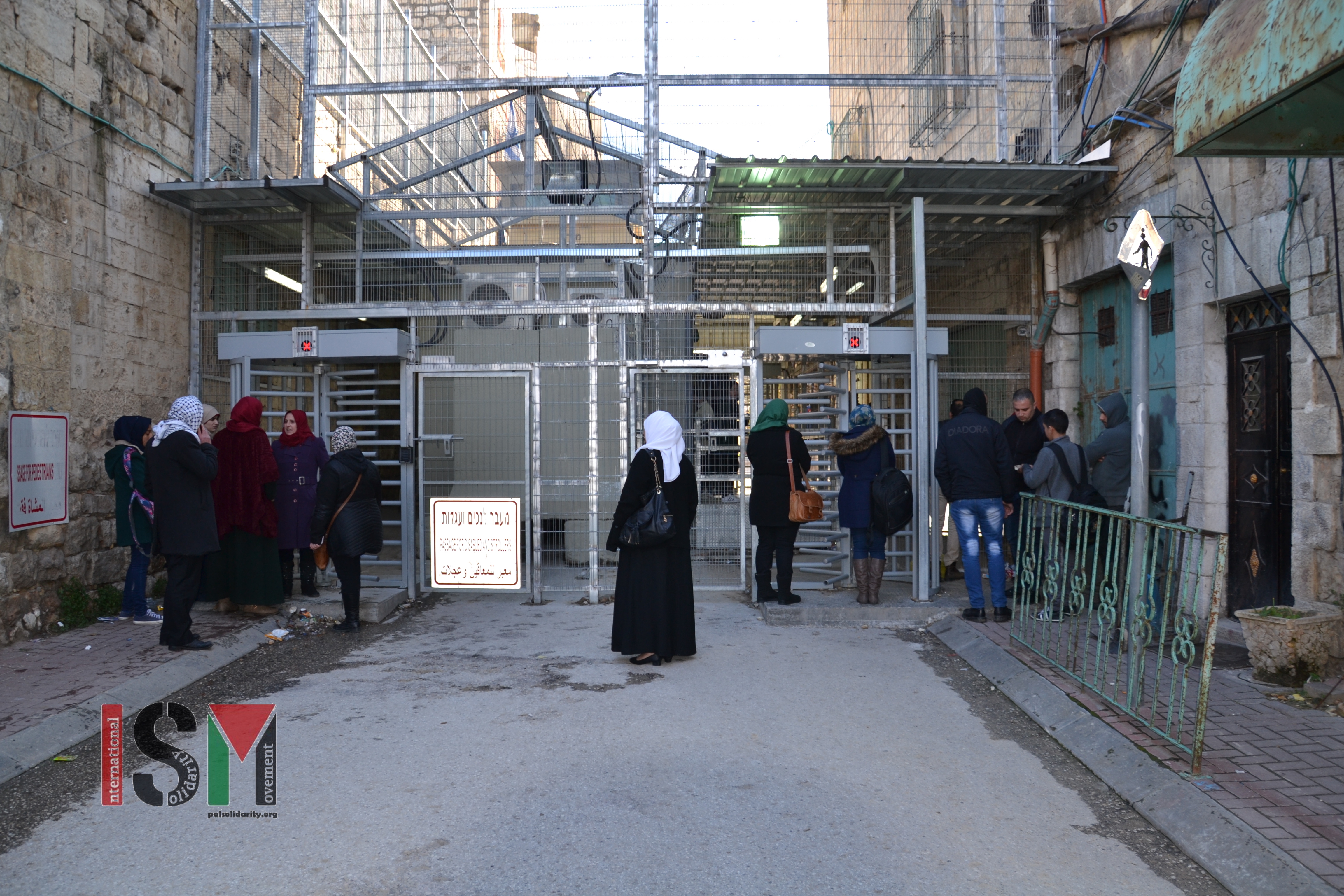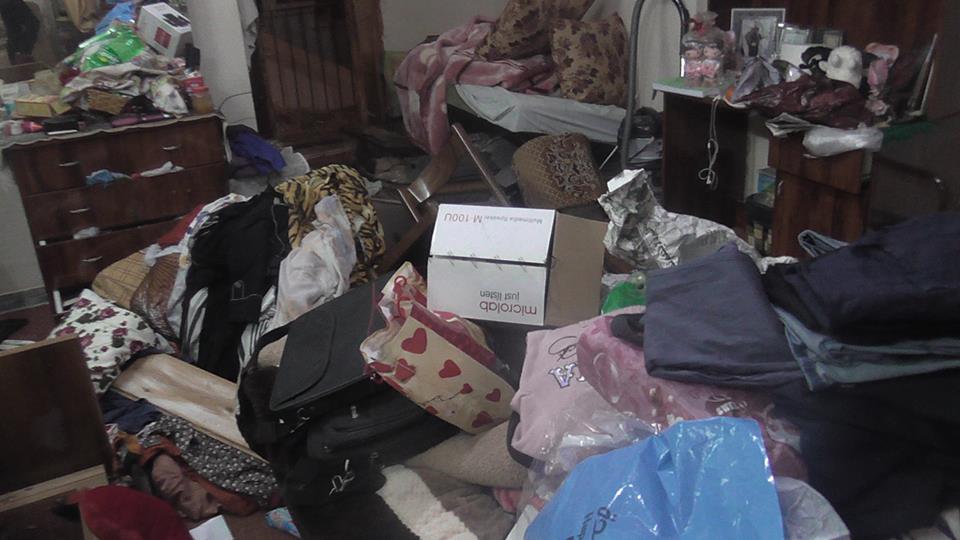Tag: Settlement
-
“If your students want an education…” – Right to education violable under occupation?
2nd February 2017 | International Solidarity Movement, al-Khalil team | Hebron, occupied Palestine On Thursday morning Israeli forces detained Palestinian teachers and students from Qurtuba school for over two hours at Shuhada checkpoint in occupied al-Khalil (Hebron) without reason and despite the fact that students and teachers always have to pass the checkpoint to reach school. Israeli…
-
The checkpoint regime: Israel and the fragmentation of Palestinian society
31st January 2017 | International Solidarity Movement, al-Khalil team | Hebron, occupied Palestine There are 17 permanent checkpoints in the H2 area under full Israeli military control in occupied al-Khalil (Hebron), manned by Israeli forces and impeding Palestinian freedom of movement. The official rhetoric of the Israeli government is that these checkpoints serve ‘security purposes’.…
-
Violent raid on family home – Israeli forces keep family locked up
22nd January 2017 | International Solidarity Movement, al-Khalil team | Hebron, occupied Palestine Israeli Forces raided a Palestinian family home on Thursday night in the Jabari-neighborhood near the illegal Kiryat Arba settlement in occupied al-Khalil (Hebron). A group of approximately 50 heavily-armed Israeli forces, accompanied by a dog, surrounded the house at 1am and woke up the…



